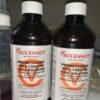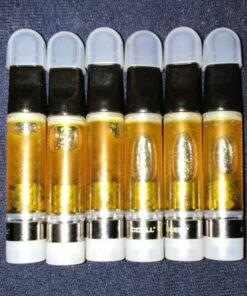PCP Powder Drug
$150.00 – $950.00

Phencyclidine, commonly known as PCP, is a potent dissociative drug that belongs to the arylcyclohexylamine class of chemicals. It was originally developed in the 1950s as an intravenous anesthetic, but due to its severe side effects, it was discontinued for medical use. However, PCP gained popularity as a recreational drug in the 1960s and 1970s and continues to be abused today.

PCP Powder Drug
Phencyclidine, commonly known as PCP, is a potent dissociative drug that belongs to the arylcyclohexylamine class of chemicals. It was originally developed in the 1950s as an intravenous anesthetic, but due to its severe side effects, it was discontinued for medical use. However, PCP gained popularity as a recreational drug in the 1960s and 1970s and continues to be abused today.
PCP typically appears as a white crystalline powder, but it can also be found in liquid or tablet form. The powder is usually odorless and bitter-tasting. It is primarily ingested by smoking, snorting, or orally consuming the powder, or by applying it to a cigarette or marijuana joint. The drug is known by various street names, such as angel dust, rocket fuel, hog, and peace pill.
Buy PCP Powder Drug
One of the primary effects of PCP is its ability to induce a dissociative state, where users feel detached from their surroundings and experience a distorted sense of reality. The drug acts as an NMDA receptor antagonist, which means it blocks the activity of glutamate, an excitatory neurotransmitter in the brain. This interference with normal brain function results in altered perceptions, hallucinations, and a sense of detachment.
PCP’s effects on an individual can vary widely depending on the dose, method of administration, and the individual’s sensitivity to the drug. Low doses of PCP may produce euphoria, mild distortions of time and perception, and a sense of invulnerability. However, higher doses can lead to more intense and dangerous effects.
PCP Powder Drug For sale
Physiological effects of PCP include an increase in heart rate, blood pressure, and body temperature. Users may also experience shallow breathing, sweating, and muscle rigidity. PCP can impair motor coordination and cause unsteady gait, dizziness, and poor balance. These effects can lead to accidents and injuries, particularly when combined with the drug’s dissociative properties.
Psychological effects of PCP can be highly unpredictable and may include paranoia, anxiety, aggression, and violent behavior. Users may feel detached from their own bodies and experience a loss of personal identity. Hallucinations, both visual and auditory, are common, and individuals may have vivid and disturbing nightmares. PCP’s dissociative properties can also cause a sense of depersonalization and derealization, where users feel disconnected from themselves and the world around them.
PCP Powder Drug Near me
Long-term use of PCP can have severe consequences on both physical and mental health. Chronic use can lead to memory loss, speech difficulties, and cognitive impairment. Users may develop persistent psychosis characterized by delusions, disorganized thinking, and mood disturbances. There have been cases of individuals experiencing flashbacks and hallucinogen persisting perception disorder (HPPD) long after discontinuing PCP use.
PCP use is associated with a range of risks and dangers. Due to its unpredictable effects, users may engage in dangerous behaviors and put themselves and others at risk of harm. Accidental injuries, including self-inflicted wounds, are not uncommon. Combining PCP with other substances, such as alcohol or opioids, can exacerbate its effects and increase the risk of overdose.
Buy PCP Powder Drug online
The use of PCP is illegal in many countries, and its possession, distribution, and manufacture are criminal offenses. Law enforcement agencies classify PCP as a Schedule II controlled substance, recognizing its high potential for abuse and the risks associated with its use.
Treating PCP abuse and addiction often requires a comprehensive approach that includes medical detoxification, behavioral therapy, and support programs. There are no specific medications approved for the treatment of PCP addiction, but supportive care and counseling can help individuals overcome their dependence on the drug.
In conclusion, PCP is a potent dissociative drug that induces altered perceptions, hallucinations, and a sense of detachment from reality. It has significant risks and dangers associated with its use, including physical and psychological harm. The long-term effects of PCP can be severe, leading to cognitive impairment and persistent psychosis. Due to its potential for abuse and the risks it poses, PCP is classified as a controlled substance and is illegal in many countries.
Certainly! Here’s some additional information about PCP:
1. History: Phencyclidine (PCP) was first synthesized in the 1950s as an intravenous anesthetic for surgical use. It was marketed under various brand names, including Sernyl and Sernylan. However, its use as an anesthetic was discontinued due to its undesirable side effects, such as agitation, delirium, and hallucinations. PCP then found its way into recreational use in the 1960s and 1970s.
2. Pharmacology: PCP acts as an antagonist at the NMDA receptor, which plays a crucial role in learning, memory, and perception. By blocking the activity of this receptor, PCP disrupts the normal functioning of glutamate, an excitatory neurotransmitter. This disruption leads to the dissociative and hallucinogenic effects associated with PCP use.
3. Routes of Administration: PCP can be ingested through various routes. Smoking is a common method, where the drug is typically applied to a cigarette or combined with marijuana. Snorting the powdered form of PCP is another route of administration. Some individuals may also dissolve PCP powder in a liquid and inject it intravenously. The choice of administration method can influence the intensity and duration of the drug’s effects.
4. Effects: The effects of PCP can be highly dose-dependent. At lower doses, users may experience euphoria, relaxation, and a sense of detachment from their surroundings. As the dose increases, the effects become more intense and can include hallucinations, paranoia, confusion, and agitation. PCP can also cause a range of physical effects, such as increased heart rate, elevated blood pressure, and muscle rigidity.
5. Drug Combinations: PCP is sometimes used in combination with other substances, which can further heighten its effects or lead to dangerous interactions. Combining PCP with alcohol, for example, can potentiate its sedative effects and increase the risk of respiratory depression. Mixing PCP with stimulants like cocaine or amphetamines can result in unpredictable and potentially harmful reactions.
6. Adverse Reactions: PCP use can lead to a phenomenon known as “bad trips” or acute PCP intoxication. This state is characterized by severe agitation, psychosis, and a loss of touch with reality. Individuals experiencing a bad trip may become highly unpredictable, aggressive, or violent, posing a risk to themselves and others. In such cases, medical intervention may be necessary to manage the acute effects and ensure the safety of the individual.
7. Withdrawal and Addiction: Prolonged or heavy use of PCP can lead to physical and psychological dependence. Abrupt discontinuation or reduction in PCP use can result in withdrawal symptoms such as cravings, depression, and anxiety. Although there are no specific medications approved for PCP addiction treatment, behavioral therapies, counseling, and support programs can help individuals overcome addiction and maintain long-term recovery.
8. Legal Status: PCP is classified as a Schedule II controlled substance in the United States, indicating its high potential for abuse and the associated risks. Its possession, distribution, and manufacture are illegal in most countries. The penalties for PCP-related offenses can vary depending on jurisdiction, but they are generally severe.
It is important to note that the information provided here is based on general knowledge about PCP up until September 2021. It’s always advisable to consult updated and reliable sources for the most recent information on drugs and their effects.
| Quantity | 10 Grams, 25 Grams, 50 Grams, 100 Grams |
|---|
Be the first to review “PCP Powder Drug” Cancel reply
Related products
Bestsellers
Bestsellers
Bestsellers
Bestsellers
Bestsellers
Bestsellers
Bestsellers
Bestsellers














Reviews
There are no reviews yet.